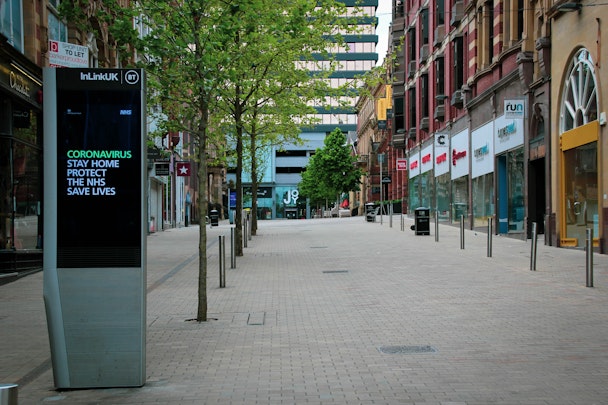Why have some agencies fared well in the pandemic?
No-one would say that the pandemic has been, overall, a good thing. But, like any crisis, it hit us all in different ways, and businesses are no different. As the dusk starts to clear, AgencyUK’s Sammy Mansourpour plumbs his own experiences as an agency boss to understand why some agencies not only survived, but grew.

AgencyUK on how agencies can thrive in a post-pandemic world.
Our fear leading up to the height of the pandemic, shared with most of our peers, seemed to center around income. Would the world go dark, would client activity switch off, would income cease coming in? It took weeks, not months for us to see that the wheels of commerce would continue to turn because brands needed us and our fellow agencies more than ever. But why?
The pandemic hit the workforce first. With the workforce down, outsourcing became a means to an end. For each of our clients’ staff who vanished, be it through Covid-19 or furlough, the work being sent our way would increase.
Different pandemics in different industries
For e-tail brands, business was booming but operations were failing. Stock changes, supply chain shortages, and demands on customer service all required marketing and communications support. Where advertising diminished, CRM was amplified – skills they looked to us and their agency rosters to fill.
Across our healthcare portfolio, the pandemic was affecting timelines. Drug development programs, new medical device innovations and general health services were all in overdrive, but events were canceled, meetings were on ice and project streams ground to a halt.
The race quickly became systematic. How do we find, implement and use technology platforms to better support business-as-usual operations? Clients looked to us to help plan lean infrastructure, in many cases adopting our existing agency processes and scaling them up.
Dealing with lockdown
But we were also suffering with a fragmented workforce. Our biggest challenge was never going to be keeping busy, but being able to continue doing great work while miles apart, and managing capacity as people dropped out with Covid-19.
The first hit was creative. This is not a team that can function optimally in isolation. A huge part of creative ideation is based on collaboration and having fun together. We certainly saw creativity suffer, and some members of the team become disengaged, not through lack of motivation, but through a lack of stimulation and ideas.
Strategy, digital and media were fine. With stricter quality assurance, and formalizes team standups, they were able to function happily.
Young people suffered the most. In an agency, much of the education is through osmosis Taking away younger staffs’ ability to hear their surroundings dampened their ability to learn. There is huge value in being immersed in an office culture.
Coming out the other end
From what we’ve seen throughout the pandemic, the period has served to accelerate the behavioral trends in how agency staffers work together. It was never realistic to assume the office was dead and everyone would live and work out of their bedroom, nor was it realistic to assume everyone would revert to hour-long commutes. A balance needed to be struck, and I think it has been.
We set up six procedures during lockdown one which we’ve stuck to ever since. They form a vital part of our working week and have transformed how we approach work and each other.
- Three days in, two days out. No excuses, and it can’t exclude Mondays and Fridays in the same week
- All-agency standup every morning
- Team meetings twice weekly, face to face at AUK HQ
- Friday learning lunch, all to attend remote or in-person
- Team sign-outs, for all those working on a project, they end the day with a state of play
- Mixed-up lunches, for members of different teams to spend time together
Flexible working is a thing. Company leaders can see value in people having quiet time and balance that with team events. Young people and creative people particularly need more face-to-face collaboration - they cannot fight alone.
What we’ve seen has been a shortcut to efficiency. Fewer wasteful client meetings, lower travel costs, and a heightened adoption of useful tech, streamlined how we communicate. Have we reached nirvana? Not by a long shot, but we have seen a healthy rise in bottom lines.
Content by The Drum Network member:

AgencyUK
We’re an independent brand communications agency voted Ad Agency of The Year 2019 and Brand Strategy Agency of the Year 2020 by Drum Recommends. Our services span...
Find out more
